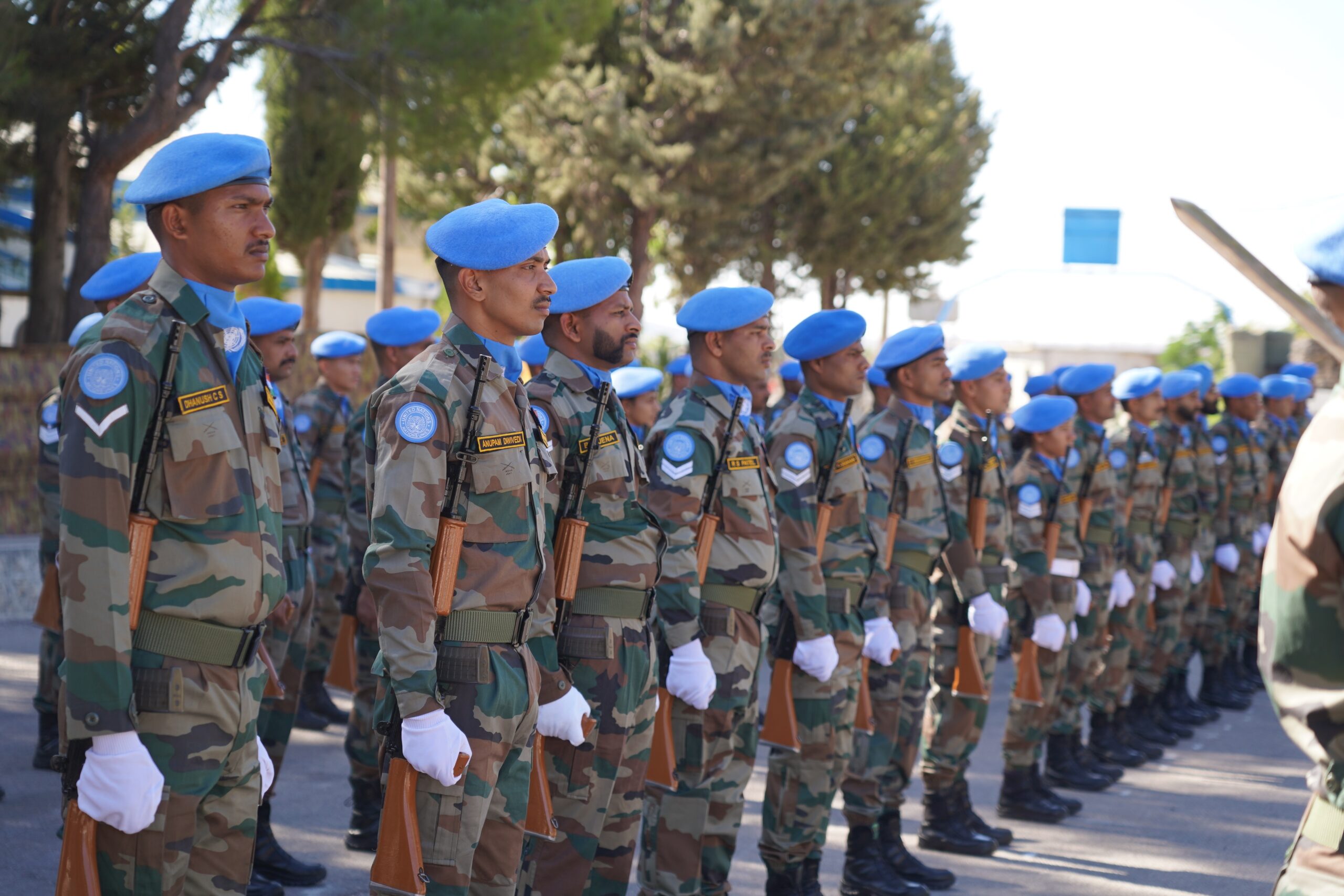The Indian Army, which is stationed at the Israel-Lebanon border under the United Nations peacekeeping forces, is closely monitoring the situation as the conflict between Israel and Hezbollah escalates in the Middle East.
As part of the United Nations Interim Force in Lebanon (UNIFIL) mission, nearly 600 Indian soldiers are stationed along the Israel-Lebanon border.
Their responsibility in this volatile region is to prevent escalations and preserve peace, rather than to engage directly in the conflict. The situation on the ground where Indian troops are stationed is being closely monitored by the Indian Army, according to defence sources.
A series of explosions in pagers and walkie-talkies utilised by Hezbollah escalated the conflict between Israel and Hezbollah. When the militant group, which is backed by Iran, launched missiles at Israel, Tel Aviv announced that it would conduct extensive strikes throughout Lebanon.
Hezbollah strongholds and ammunition storage sites were among the numerous regions in Lebanon that the Israeli Defence Forces (IDF) targeted. The Israeli Defence Forces (IDF) asserted that they had hit over 300 Hezbollah targets, thereby disrupting the organization’s intentions to launch thousands of rockets at Israel.
The Indian Army maintained a state of alertness during the course of these military operations, operating from their position along the Blue Line, a 120-kilometer demarcation between Israel and Lebanon that was established by the United Nations in 2000. Despite the fact that this line is not a recognised border, it functions as a buffer zone that is supervised by UN peacekeepers. Operating under stringent United Nations protocols, the Indian contingent has been stationed in the region for decades. Its primary objectives include the monitoring of the region, the maintenance of peace, and the response to any threats to UN missions.
The Blue Line functions as a peacekeeping zone, and UN forces are employed to prevent the escalation of conflicts between Israel and Lebanon. Although the Indian soldiers are not engaged in active combat, they are tasked with the responsibility of preserving stability in this extremely sensitive region. Their primary objective is to safeguard UN personnel and peacekeeping operations, as well as to prevent any escalation of violence along the border.
In Lebanon, the region between Tyre and Sidon is a critical area where Hezbollah, with the support of Iran, maintains a substantial influence. This region is a critical stronghold for Hezbollah due to its substantial Shia population and Palestinian refugee camps. Despite the fact that Hezbollah’s active presence is restricted in certain regions, their operatives are still engaged, which presents a difficult situation for peacekeepers.
Lebanon’s population is a diverse blend of religious communities, with approximately 67% of the population identifying as Muslim, with the religion being almost evenly divided between Sunni and Shia. The remaining 32% of the population is Christian, with a smaller number of Druze, Jewish, and other minority communities. The Palestinian refugee camps in the region also play a significant role, with a significant number of residents supporting Hezbollah.
The United Nations peacekeeping force is divided into two primary sectors: the East and the West. Each sector is staffed by brigade-level troops, resulting in the presence of three to four battalions in each sector. The Indian battalion is located in the East Sector, in close proximity to the Golan Heights. All Indian soldiers are reported to be in good health, despite the ongoing rocket attacks and airstrikes in the region.
In order to prevent the escalation of tensions, any activity near the Blue Line, such as maintenance or security operations, must receive prior approval from UNIFIL, the headquarters of the UN force, which is situated in Naqoura. The work of UNIFIL is intricate, as even seemingly innocuous actions in the region can rapidly escalate. Israel ensures that peacekeepers are informed and relocated to safety whenever it plans airstrikes in close proximity to the troops’ positions.
The Indian Army is conducting a meticulous assessment of the situation on the ground to guarantee the safety of Indian soldiers in light of the ongoing conflict and tension between Hezbollah and Israel. At present, approximately 6,000 Indian soldiers are engaged in a variety of UN missions across the globe, and 159 have lost their lives in the course of these missions in the past few decades.
